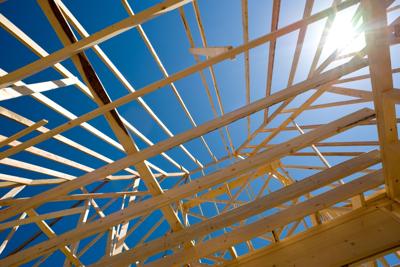There’s a big change coming for Ontarians looking to buy a new home this year.
Starting on July 1, buyers , the province’s new home warranty provider, of their purchase of a new or preconstruction home within 45 days.
As of 2026, if they fail to do so, they’ll be insured for less of their deposit, should anything go wrong with the project.
“It’s a step to notify us that you’ve entered into an agreement,” said Tarion CEO Peter Balasubramanian. “And then that helps us keep track of what’s happening.”
An independent non-profit established in 1976, Tarion has a mandate to protect buyers of new homes in the province. For example, if a builder goes bankrupt and runs off with a buyer’s deposit, the consumer can make a claim to them.
The new step only applies to buyers of new freehold homes, not condos.
Tarion has developed where buyers can register their purchases, and enter information such as the home’s address, their deposit amount and the builder. This helps Tarion identify whether the builder is legal, and if they’re not they will stop consumers from giving them any more money, Balasubramanian said.
Under new provincial legislation, as of Jan. 1, 2026, if you don’t register within 45 days you’ll be put into a pool with other buyers who also didn’t register, which is capped at $10 million per year, Balasubramanian said.
As for how much your deposit is insured for, it depends how many other buyers there are who are looking for their deposits back.
“If there’s not enough to go around, you would end up getting less. And that’s a real risk,” said Balasubramanian
Independent consumer advocate Barbara Captijn called the new registration requirement confusing and unfair to buyers.
“It’s wrong from A-Z,” she said.
Captijn said the amount that buyers who don’t register will be dinged for on their deposit protection is not clear.
“Through no fault of their own a lot of people will be penalized,” she added. It shouldn’t be the buyers or victims who are punished when buildings go bankrupt, she said, but the shady builders. The person who “took the deposit money and ran off with it to the Caribbean.”
Balasubramanian said Tarion is also pursuing bad builders through increasing the penalties on illegal building activity and devoting more investigative resources to finding them, in conjunction with the Home Construction Regulatory authority.
He admits that there is some “uncertainty” around the deposit insurance for buyers that don’t register. But a simpler system could have left homebuyers with even less.
“If you don’t register, you’re going to participate in a pool, and the amount that you get depends on how many people are in that pool,” he said.
“Register and you get maximum coverage. If you don’t register, you may not.”
Currently deposits are insured for up to $100,000, depending on the price of the new home.
The Star’s Sheila Wang wrote about some of the pitfalls with the registration system in February.
Last year, Tarion paid out the largest consumer protection payout ever of around $80 million, Balasubramanian said, to almost a thousand homebuyers who lost deposits.
This was because of an increase in receiverships, where a third party takes control of a troubled company that’s not paying back debt, Balasubramanian said, as well as a couple of cases of illegal builders.
“The experience of last year really threw it into high relief how vulnerable the fund could be to a fraudulent actor,” he said.




























To join the conversation set a first and last name in your user profile.
Sign in or register for free to join the Conversation